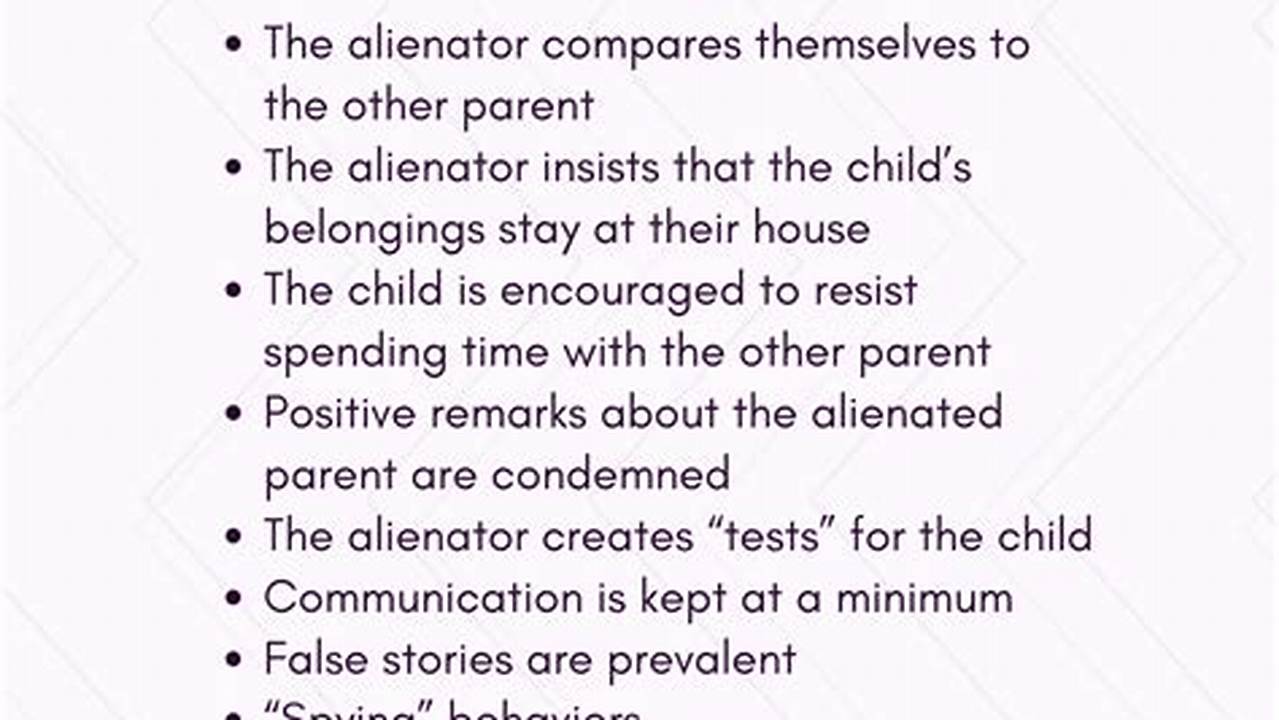Navigating the complexities of fractured family dynamics requires resources that offer support and guidance. A comprehensive resource addressing the challenging issue of parental alienation can be invaluable for targeted individuals, families, and professionals involved in these sensitive situations. Such a resource provides a roadmap for understanding, addressing, and mitigating the damaging effects of this complex issue.
Understanding the Dynamics
A foundational understanding of the psychological processes and behavioral patterns involved is crucial for effective intervention.
Recognizing the Signs
Identifying the subtle and overt manifestations of alienation is essential for early intervention and prevention of escalation.
Legal and Therapeutic Strategies
Combining legal and therapeutic approaches can offer a comprehensive framework for addressing the multifaceted challenges involved.
Supporting the Targeted Parent
Providing emotional support and practical guidance to the targeted parent is vital for maintaining resilience and promoting positive coping mechanisms.
Protecting the Child’s Well-being
Prioritizing the child’s emotional and psychological well-being is paramount throughout the process.
Building Healthy Communication
Fostering healthy communication patterns between family members is essential for rebuilding relationships and reducing conflict.
Re-establishing the Parent-Child Bond
Creating opportunities for positive interactions and rebuilding the parent-child bond requires careful planning and sensitivity.
Co-parenting Strategies
Developing effective co-parenting strategies that minimize conflict and prioritize the child’s needs is crucial for long-term success.
Long-Term Recovery and Healing
Supporting long-term recovery and healing for all involved family members requires ongoing support and resources.
Tip 1: Seek Professional Guidance
Consulting with therapists, counselors, and legal professionals specializing in parental alienation is crucial for developing a personalized strategy.
Tip 2: Document Everything
Maintaining detailed records of interactions, behaviors, and events related to the alienation is essential for legal proceedings and therapeutic interventions.
Tip 3: Focus on the Child’s Needs
Prioritizing the child’s best interests and emotional well-being should remain the central focus throughout the process.
Tip 4: Practice Self-Care
Engaging in self-care activities and seeking support for emotional well-being is essential for navigating the challenges of parental alienation.
What are the common signs of parental alienation?
Common signs include a child’s unjustified rejection of a parent, denigration of the targeted parent without basis, and unwavering alignment with the alienating parent.
How can a targeted parent protect their relationship with their child?
Targeted parents can focus on maintaining consistent contact, documenting interactions, and seeking professional guidance to navigate the challenges.
What role do therapists play in addressing parental alienation?
Therapists provide therapeutic support to both the child and the targeted parent, helping them address the emotional impact of alienation and develop healthy coping mechanisms.
What legal options are available for targeted parents?
Legal options can include seeking court orders for custody modifications, reunification therapy, and interventions to address the alienating behavior.
How can families begin to heal after experiencing parental alienation?
Healing requires open communication, professional guidance, and a commitment from all involved parties to prioritize the child’s well-being and rebuild relationships.
What resources are available for families dealing with parental alienation?
Support groups, online communities, and educational resources can provide valuable information and support to families navigating this challenging issue.
Addressing parental alienation requires a comprehensive and multifaceted approach. By understanding the dynamics, recognizing the signs, and utilizing appropriate strategies, families can work towards healing and rebuilding healthy relationships.


